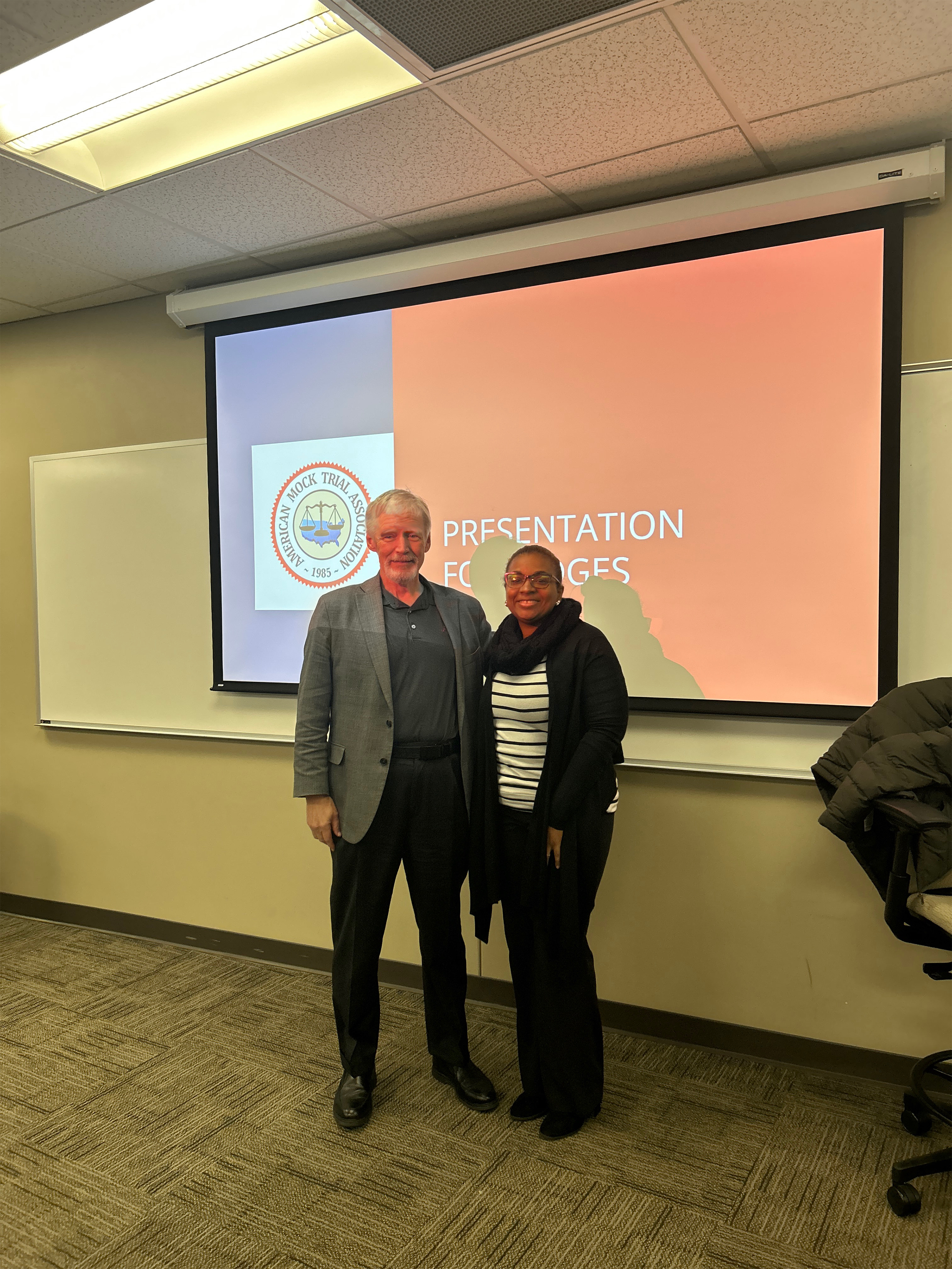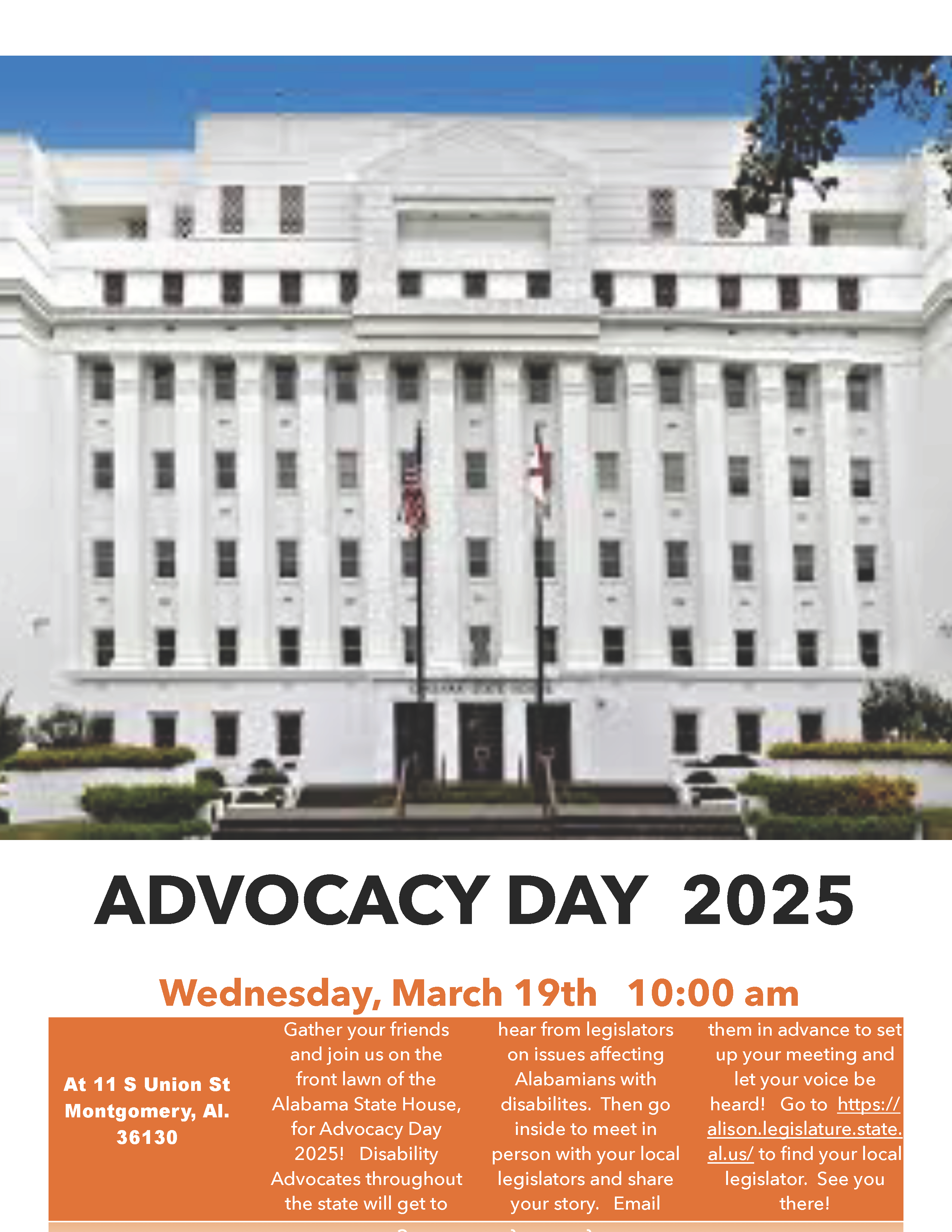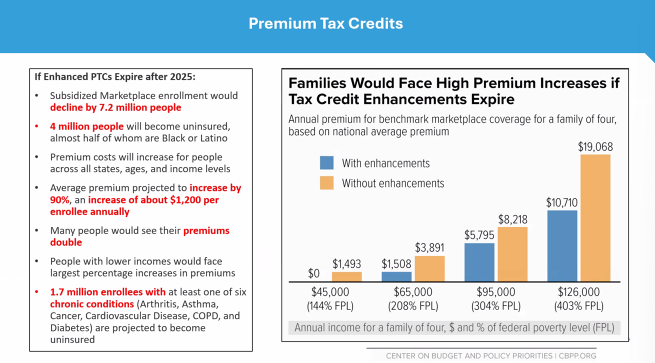| Advocacy Re-imagined: Dive into Our Redesigned Newsletter! |
| Our vision at ADAP is one of a society where persons with disabilities are valued, exercise self-determination through meaningful choices, and have equality of opportunity. We believe in self-advocacy, but we know you need the right resources, information, and tools to be empowered to fight for our rights as a community! To help with this mission, we are introducing our new and improved newsletter format. Each newsletter will contain: ADAP in the Community – This portion of the newsletter will provide updates on our work here at ADAP! It will include photos and information about events we attend where we engage with the community, conferences we attend, news about coalition groups we are a part of, press releases, important staff announcements, and big advocacy topics we are focused on. Knowing what we’re up to will empower and direct your own advocacy efforts! Community Resources & Training Opportunities – The final major portion of our new newsletter will include upcoming training opportunities and timely resources for you and your family. For example, we will include advocacy tips for the upcoming legislative session and information about how to reach your lawmakers to advocate for the issues most important to you. We will also highlight any training opportunities that are valuable for the disability community in this section so you know what’s coming up next in your area! Advisory Council Corner – This section will keep you informed about our Advisory Councils. ADAP’s Protection & Advocacy for Individuals with Developmental Disabilities (PADD) and for Individuals with Mental Illness (PAIMI) programs provides legal advocacy services to protect and promote the civil rights of Alabamians with developmental disabilities (DD) and with mental illness. Our Advisory Councils are so important to us because we hear directly from the communities we serve! Frequently Asked Questions (FAQ) – Our FAQ will spotlight common questions that we receive from our community! This newsletter’s FAQ will focus on the upcoming legislative session. If you’d like to submit a question that you think others may have as well, you can email our Outreach Coordinator, Nicole Watkins. Policy & Advocacy Updates – You will see a lot here during Alabama’s legislative session, which starts on February 4! There are many proposed pieces of legislation that may impact our community and our goal is to keep you informed of what our lawmakers are up to. Information is power, and we want to make sure you have the resources you need to advocate for what’s important to you! In the News – This section will include local, state, and federal news on topics and issues that impact the disability community. Let’s dive in! |
 |
| What’s ADAP been up to lately? |
| Over the past few months, we’ve been busier than ever, working diligently within the community to advocate for and support individuals with disabilities. Your unwavering support has fueled our progress, and we are thrilled to bring you lots of exciting updates and announcements! ADAP Priorities Every year, we survey the community about your priorities for the upcoming year. Since we’re now into 2025, we wanted to share a reminder with you about ADAP’s 2025 Priorities! Staff Announcements At the end of 2024, Associate Director Nancy Anderson and Chief Counsel William “Bill” Van der Pol retired from ADAP. While we are excited for both of them to enjoy retirement, we are definitely going to miss them! Nancy Anderson and our new Executive Director Shannon Shelley-Tremblay are both Rutgers alumna, and Rutgers University wrote a lovely piece on the two powerful attorneys and advocates. |
| Crimson Classic Mock Trial Competition – ADAP was at the Crimson Classic this month! This was the 8th Annual Classic – and the 7th Annual Crimson Classic field made the tournament one of the most competitive in the country with 80% of its teams participating in ORCS and over 25% competing at the National level this past season. Interim Legal Director Larry Canada and Representative Payee Coordinator Santita Word attended the Classic. ADAP’s Interim Legal Director, Larry Canada: “ADAP is proud to support future lawyers by judging this past weekend at the Crimson Classic Mock Trial Competition at the University of Alabama. ADAP’s Santita Word and Larry Canada are shown during the Judge’s orientation prior to the start of the trials.” Representative Payee Coordinator, Santita Word: “My first experience as a judge at this year’s Crimson Classic was amazing! We had a chance to meet and judge teams from various schools across the country. I was truly amazed and impressed, what a talented group of students!” |
 |
| A smiling Larry Canada (left) and Santita Word (right) stand in front of a projector screen at the Crimson Classic Mock Trial Competition. |
| Jeff Ridgeway Award – Each year, ADAP honors a person with a disability for the Jeff Ridgeway Award. The Jeff Ridgeway Advocacy Award is awarded by ADAP to recognize a person with a disability who: Has demonstrated at least three years of experience in self-advocacy at the time of their nomination. Has a record of having demonstrated leadership in self-advocacy, preferably including cross-disability advocacy. Has stated a vision for the future of the self-advocacy movement in Alabama. To submit a nomination, click on the button below! |
| Help Win Fair Pay for Disabled Workers – The Autistic Self-Advocacy Network (ASAN) has a wonderful video that will empower you to advocate for fair pay for our community! You can check out the video here. ADAP’s Involvement in the Private Duty Nursing Rule under EPSDT: We are aware of the planned enforcement of Ala. Admin. Code r. 560-X-11-.14(2)(k)(10), which states that private duty nursing (PDN) services may not be provided by a recipient’s spouse, parent, guardian, foster parent, or anyone legally responsible for the recipient who resides with the recipient. This rule impacts only EPSDT providers, which is the service that provides the majority of Medicaid-funded private duty nursing services for children under the age of 21. This rule has been in place for several years, though enforcement was not prioritized until recently. We encourage those impacted by this enforcement to contact Medicaid and their local legislators to inform them of the rule affects them and those they care for. If you would like to have an intake with ADAP to provide information about your experience and learn more about how enforcement of this rule impacts your family, you can schedule an intake by clicking the button below or by calling ADAP’s toll-free line at 800-826-1675. |
 |
| Upcoming Events & Opportunities |
| Police Academy Training – ADAP and AIDB are training the Tuscaloosa Police Department in January and February! In February, ADAP is collaborating with the Alabama Institute for Deaf and Blind (AIDB) Tuscaloosa office, directed by Dr. Kent Schafer, and providing training to the Tuscaloosa Police Department’s officers to equip the law enforcement officers with knowledge of effective communication and rights awareness of deaf individuals as they work with them in the community. National Federation of the Blind The 2025 Convention is here! It will be held at: Hotel Capstone320 Paul W. Bryant Drive. Tuscaloosa, AL 35401Phone: 1.800.477.2262. March 14th – 16th, 2025. Getting Involved in the Community Resource Network (CRN)The Community Resource Network (CRN) is a group of people from local community nonprofits, governmental entities, schools/academic institutions, faith-based organizations, healthcare providers, community volunteers, etc. who convene periodically throughout the year via Zoom to learn about current and upcoming community initiatives, discuss community needs, share resources, and develop connections/collaborations. |
| Selma Jubilee – The 60th Selma Jubilee is almost here! You can find the schedule of week-long events by visiting the Jubilee website. ADAP, in partnership with the Alabama chapter of RevUP, the American Association of People with Disabilities (AAPD), and incredible community advocates, will be participating in a panel and FAQ on voting with a disability, knowing your rights, and empowering self-advocates to exercise those rights. Our workshop will be on March 8 – come visit us and join us the following day as we honor those who fought for civil rights before us by marching across the Edmund Pettus bridge. |
| Upcoming Advocacy Days with our Partners |
| Advocacy at the Alabama State House – Cover Alabama, Tuesday, Feb. 25th, 9am-3pm Alabama State House Disability Leadership Coalition of Alabama Advocacy Day (flyer below), Wednesday, Mar. 19th, 10am Alabama State House – also hosting a series of trainings (below) Tentative Legislative Process Training Schedule: Feb. 3rd, Foley Training – Foley Public Library @ 6pm, Feb. 5th – Arc of Shelby County @ 9:30am, Feb. 6th – North Shelby County Training with People First, Heardmont Park Senior Center @ 6:30 pm, Feb. 12th – Partners in Policymaking (PIPA), Online @ 6:00pm, Feb. 27th – United Ability, Arc of Central AL, IsAble Center in Homewood @ 1:30pm, Feb. 28th – Online Virtual Training @ 3:30pm |
 |
| Gather your friends and join us on the front lawn of the Alabama State House, for Advocacy Day 2025! Disability Advocates throughout the state will get to hear from legislators on issues affecting Alabamians with disabilities. Then go inside to meet in person with your local legislators and share your story. Email them in advance to set up your meeting and let your voice be heard! Go to the Alison website to find your local legislator. See you there! |
| Every Child Alabama – Bimonthly advocacy days during legislative session, you can follow updates on their social media as well. February 12, February 26, March 5, March 19, April 2, April 16 |
 |
| PADD and PAIMI |
| PADD – ADAP’s Protection & Advocacy for Individuals with Developmental Disabilities (PADD) program provides legal advocacy services to protect and promote the civil rights of Alabamians with developmental disabilities (DD). ADAP’s PADD Advisory Council informs ADAP regarding the needs of these individuals and provides oversight and feedback to us regarding our PADD program priorities. The PADD Advisory Council is comprised of community members, the majority of whom are self-advocates with DD or their immediate family members. The Council meets at least three times a year in various locations across the state. Members are reimbursed for travel expenses to all meetings. PAIMI – ADAP’s Protection & Advocacy for Individuals with Mental Illness (PAIMI) program provides legal advocacy services to protect and promote the civil rights of Alabamians with mental illness. ADAP’s PAIMI Advisory Council informs ADAP regarding the needs of these individuals and provides oversight and feedback to us regarding our PAIMI program priorities. The PAIMI Advisory Council is comprised of community members, the majority of whom are self-advocates with mental illness or their immediate family members. The Council meets at least three times a year in various locations across the state. Members are reimbursed for travel expenses to all meetings. For more information regarding the PADD and PAIMI Councils or to request help with completing an application, contact Executive Director Shannon Shelley-Tremblay by email or by phone at 205-348-4928. |
 |
| FAQ: Legislative Session |
| This newsletter’s FAQ is all about legislative session! We know that figuring out what’s going on in the state capitol can be difficult – we’re here to help! Q: How do I find out what’s going on this legislative session? A: Alabama Arise’s website is a great place to start! They consistently post good information on what’s happening in Montgomery and how proposed legislation may impact you. Q: Where can I go to track bills? A: Tracking bills can get a little messy – you can see all the bills that have been prefilled for the 2025 session by looking through the Alison database. You can search by committee, bill text search, the sponsor of the bill, and you can sign in with a Google account to “save” bills to keep an eye on them. Q: Where can I find my lawmakers? A: You can look at the Alabama legislative map by going here! Tap or click the series of popups and then you can enter your address. Once you enter your address, you should see a list of your lawmakers and elected officials slide over from the right side of the screen. Q: How do I contact my lawmakers? A: One amazing way to interact with your lawmakers is by attending an Advocacy Day! We have listed several in our Community Resources section above. You can also find out how to contact your lawmakers by phone, email, or letter by going to this website and looking for your lawmaker’s name in the correct section (House of Representatives or Senate.) Q: I feel lost and don’t know where to start – what should I do? A: You can contact our Voting Rights Advocate for help! Reach out to Nicole Watkins by email or give them a call at 205.539.2034 and they will help you get started. |
 |
| Alabama Legislative Session Begins Feb. 4th |
| Welcome to our policy and advocacy section! In this portion of the newsletter, we will highlight some upcoming prefilled bills that lawmakers have filed. The potential legislation we highlight will be focused on issues that impact the disability community, though of course there are many more issues you are welcome (and encouraged) to investigate yourself! ADAP and its partners will do our best to inform you on how the legislation we discuss will impact our community, empowering you to be a better self-advocate for the issues most important to you and your family. Health Care – ADAP and our partners are monitoring several prefilled bills, including: HB89 (Rep. Marilyn Lands, [D]): Medicaid coverage for pregnant women. HB75 (Rep. Adline Clarke, [D]): Wheelchair; instituting repair requirements. HB2 (Rep. Chip Brown, [R]): Vaccines; would require consent from parent/guardian. SB19 (Sen. Merika Coleman-Evans, [D]: Contraception, right to provide and dispense. Policy watch: Blue Cross and Blue Shield of Alabama is publicizing a plan called ALLHealth to close Alabama’s health coverage gap. We expect the plan would use Medicaid expansion dollars to buy private insurance for many eligible Alabamians, much as ALL Kids provides children with private coverage on a sliding cost scale. Alabama Arise is tracking this plan closely with our Cover Alabama coalition partners and will assess it as more details become public. In this link, Cover Alabama highlights its list of “must-haves” for any plan to close the health coverage gap in Alabama. Voting Rights – Alabama has one of the lowest voter turnout rates in the country. In November, only 58.5 percent of registered voters in the state cast a ballot in the presidential election, the lowest rate since 1988. There are quite a few prefilled several bills on the subject of voting rights and potential changes that would impact people with disabilities:HB64 (Rep. Ontario Tillman, [D]): State holidays; this bill would add Election Day as a state holiday. HB31 (Rep. Adline Clarke, [D]): Absentee voting; to allow a disabled voter to designate an individual to deliver the voter’s application.HB60 (Rep. Adline Clarke, [D]): Elections: This bill would eliminate the qualifications that allow for absentee voting, further specify the process for voting by absentee ballot, and would establish the Alabama Voting Rights Act and Alabama Voting Rights Commission and would provide for its membership. This bill would require the Alabama Voting Rights Commission to review certain actions that occur within the state that could potentially discriminate against protected classes of voters. This bill would require the commission to preclear certain official actions relating to elections and would require the Secretary of State to maintain a statewide database to assist in the administration of elections and to publicize certain information related to voting. (There is also a companion bill in the Senate introduced by Sen. Kirk Hatcher [D], SB7.) HB71 (Rep. Adline Clarke, [D]): Elections; this bill would provide a process for early voting in general and special elections, other than municipal elections, and would prescribe minimum days and hours of operation of early voting centers. HB77 (Rep. Adline Clarke, [D]): Voting, absentee voting; this bill would provide for a designee to deliver a disabled voter’s absentee ballot application and absentee ballot. ADAP and our partners will continue to track these bills and others that are introduced in the coming days and weeks. For ongoing updates, keep an eye on our social media. You can find us on Facebook, Instagram, and BlueSky! For additional resources, check out Alabama Arise’s Action Center below by clicking the button! |
 |
| Nationwide |
| Federal Budget Cuts Medicaid – The New York Times wrote a report on the options that are on the table for Congress when it comes to cutting the budget. One option suggested by the budget committee is undercutting the Affordable Care Act’s expansion of Medicaid. This would reduce the share of Medicaid costs the government pays for while increasing the financial burden on individual states. Another potential item on the list would impose work requirements for Medicaid recipients on able-bodied adults without dependents (with exemptions for pregnant women, students, and primary caregivers of dependents). According to the Congressional Budget Office, a nonpartisan office that conducts objective, impartial analysis, work requirements would cause 600,000 people to lose their coverage. ADAP is a member of Cover Alabama, a nonpartisan alliance of over 130 community partners, consumer groups, businesses, health care providers and faith groups advocating for the state of Alabama to provide quality, affordable health coverage to its residents and implement a sustainable health care system. The coalition provided a presentation for community members in November of 2024 on what potential budget cuts would mean for Alabama families. Included in the presentation was a detailed explanation of Premium Tax Credits (PTCs), which provide upfront financial assistance on a sliding scale to help people afford health insurance. During COVID, Congress passed legislation to enhance those premiums. Marketplace insurance enrollment doubled after enhancements, but if we let premiums expire in 2025: |
 |
| A chart indicating how families would face premium increases if tax credit enhancements expire. Without premium tax credit (PTC) enhancements, many families would see their premiums double. Enrollment would decline by 7.2 million people4 million people will become uninsured, almost half of whom are Black and Latino. Premium costs will increase for people across all states, ages, and income levels. Average premium projected to increase by 90%, an increase of about $1200 per enrollee annually Many people would see doubled premiums. People with lower incomes would face largest percentage increase in premiums 1.7 million enrollees with at least one of six chronic conditions (arthritis, asthma, cancer, cardiovascular disease, COPD, and diabetes) are projected to become uninsured. |
| If you’d like to get involved in advocacy efforts regarding Medicaid expansion, you can find out more by heading to the website for Cover Alabama. |
| Cuts for Human Services – Many expect Congress will try to freeze or reduce spending on services that help working people to offset the cost of tax cuts. Services at risk include: education services, affordable housing, and public transportation. Tax Cuts – Alabama Arise expects Congress to quickly try to renew the federal tax cuts passed in 2017. These cuts benefited wealthiest households and corporations the most, and organizations like Alabama Arise are concerned that targeted tax credits for people with low incomes, including the Earned Income Tax Credit and the Child Tax Credit, may be cut to offset the cost of tax cuts for wealthy households. You can find out more about these issues from our partner, Alabama Arise, by clicking the button below: |
| Statewide |
| Alabama Politics – The Alabama House Republican Caucus has released its 2025 “Alabama Values” legislative agenda. The list contains the objectives that the Republican super-majority in Alabama intends to prioritize during the upcoming legislative session, set to begin on February 4. You can find out more about the agenda and its objectives here. Health Care and Insurance – A coalition of doctors, organizations, and healthcare groups have formed a coalition to call for an end to delays in patient care caused by prior authorizations. The “Fix Prior Authorization” campaign was launched in August by doctors with the Medical Association of the State of Alabama and is challenging insurance requirements that cause patients to wait for necessary care. Alabama Department of Mental Health Commissioner Kim Boswell and Alabama Department of Human Resources Commissioner Nancy Buckner discussed upcoming developments in Alabama’s fight against its mental health crisis. ADMH currently operates five crisis centers in major cities in Alabama with an additional center expected to open within weeks. However, many Alabamians do not have immediate access to the crisis centers, since most of our counties are classified as rural. Education – Alabama is considering a new education funding model to address inequality in Alabama. There is a great deal of advocacy around this issue, particularly from the Every Child Alabama coalition (ECA). ADAP is a member of the ECA, which is a coalition of organizations and individuals working to ensure every child across Alabama has access to a world-class education to reach their full potential. Alabama has maintained the same funding model for over 30 years and remains one of the six states left in the country that uses a resource-based formula instead of a student-based formula. School funding is a complex topic! The ECA can help you break this down with a variety of different resources – check out their page by clicking the button below! |
| That’s it for this edition! Keep an eye on our social media for current updates, important resources and information, upcoming events, trainings, and much more! ⏬ ⏬ ⏬ |



| Copyright © 2025 Alabama Disabilities Advocacy Program All rights reserved. Our mailing address is: Alabama Disabilities Advocacy Program Box 870395 – Tuscaloosa, Alabama 35487-0395 website: http://adap.ua.edu e-mail: adap@adap.ua.edu |